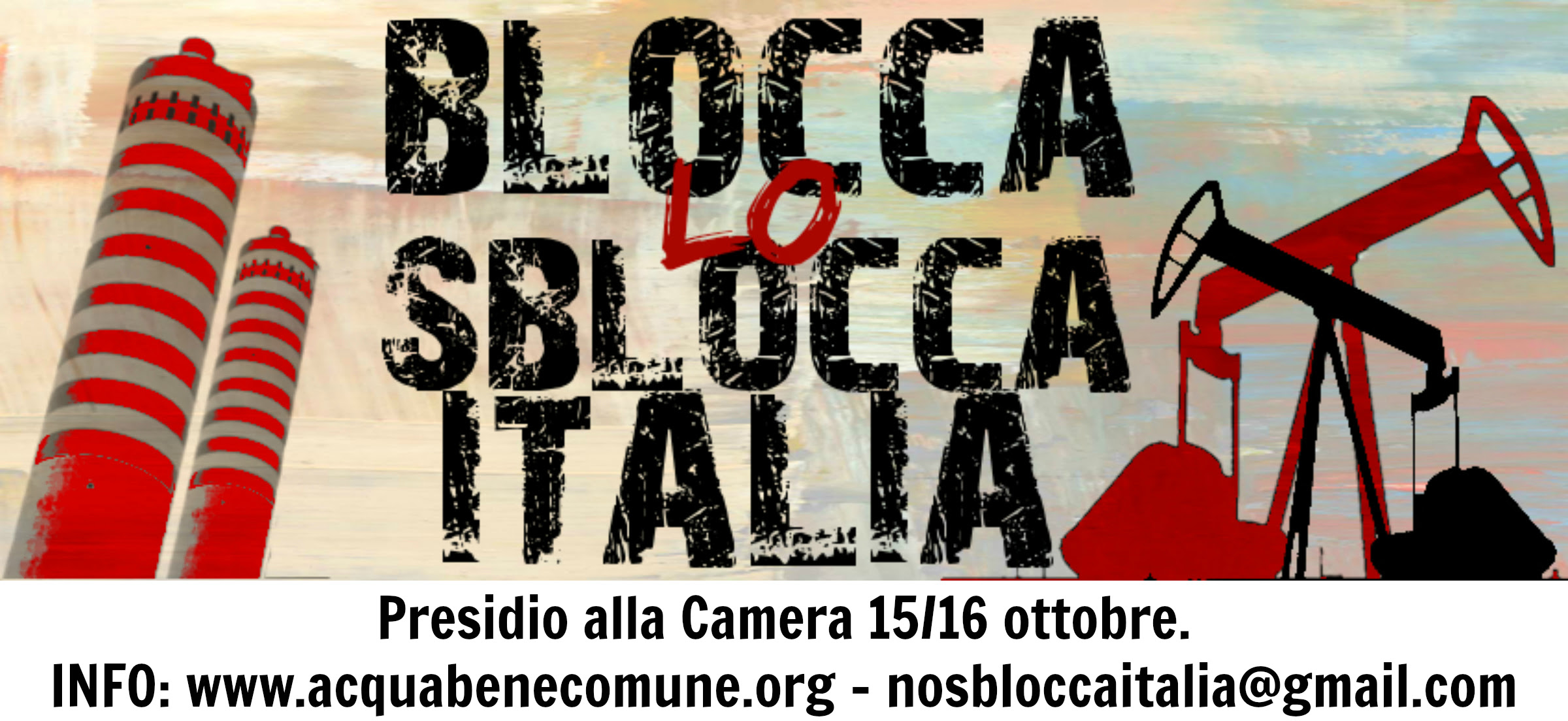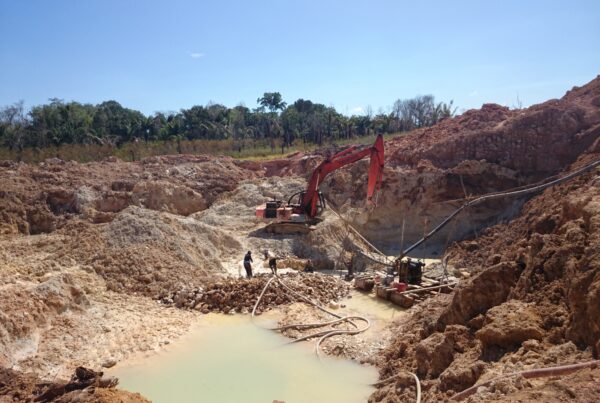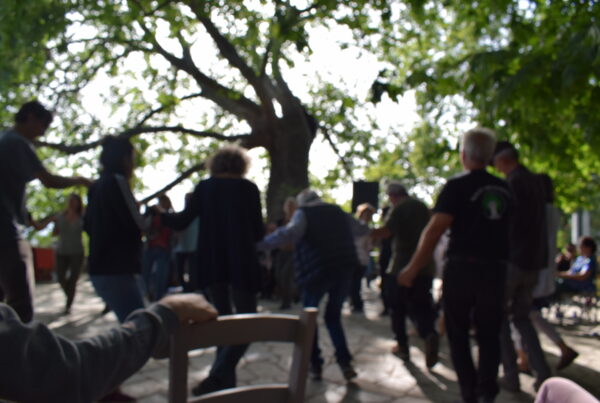The Unlock Italy Law, recently passed in the Italian parliament, is a festival of deregulation and legalised plunder. From fossil fuel extraction to construction permits, the country is put on sale to restart growth. But from the targeted territories, social movements are waging resistance. And they bring another idea of prosperity.

The map shows the oil wells and the offshore platforms operating and waiting for permission (source: map realized by Fabrizia Arduini – WWF Italia, data from Ministry of Economic Development 2011)
Italy’s current Prime Minister, Matteo Renzi, has been the third in three years to be appointed by the Parliament without national elections. Following the fall of Berlusconi’s III government in 2011, the Italian deadlock was solved through agreements between political parties and the President Giorgio Napolitano, with the blessing of the Troika. The reason given for the top-down intervention was the need for a fast solution to rescue Europe’s third largest economy from the “brink of a full-blown debt crisis”.
After the technocrat Mario Monti and the moderate Enrico Letta, the “young” Matteo Renzi became the leader of Partito Democratico (the centre-left Democratic Party) and gained the top office in February 2014 thanks to a broad support coalition from his party and the party of Berlusconi. Renzi promoted himself as the Rottamatore, the Scrapper, that is, the champion of the “new” and the dismantler of the old political establishment. However, his political vision is nothing new under the sun: merely a servile devotion to the continuation and the deepening of the neoliberal model. Renzi’s ability to delight the masses, to forge convenient alliances and to coalesce consensus around him, has allowed a comparison with the Prince outlined in the work of another famous Florentine, Niccoló Machiavelli. Renzi, this post-modern prince, is indeed ready to shake the country to the foundations in order to please the kings of the market, trying to balance at the same time Italy’s adherence to the Troika’s diktats.
Facing the worst economic stagnation since World War II, rising unemployment and the piling up of a public debt out of control, Renzi’s self-declared task has been “to honour the commitments with the European partners but to restart growth and to attract investments”. His policies since the start of the mandate have been aimed to loose the course of austerity and to foster structural reforms that would facilitate direct investments at the expense of environmental regulations and democratic procedures. On the labour side, his recipe for a “better future for Italians”, one of Renzi’s favourite refrains, implies an increasing submission of labour rights to corporate demands (concretised recently by the Jobs Act). More comprehensively, his cabinet is downsizing regulations on natural resource use and permits-granting procedures for infrastructural and extractive projects to make the country more attractive to investors.
Italy for sale
The main outcome of this neo-liberal effort has been the Sblocca Italia (Unlock Italy) reform package. Imposed by decree during the summer of 2014, and ratified recently into law 133/2014 after parliamentary vote, the Sblocca Italia law is an assemblage of normative changes composed by 45 articles that address a heterogeneity of sectors with the stated goal to “reduce bureaucracy, unlock the country’s development, re-launch the economy”. From construction permits to oil extraction, touching on waste management, public administration reform, disaster prevention, privatisation of public services and even internet infrastructure, Unlock Italy is a festival of deregulation and legalised plunder. To assess the law in its entirety is beyond the reach of this post. What deserve attention, though, from a Political Ecology perspective are at least three areas of its intervention that will have immediate effect on the relations between economic development and socio-ecologies throughout the country.
-
Unlock Extraction
In order to “increase the security of gas supplies” and to “enhance national energy resources”, the law gives the status of “strategic interest” and “public utility” – with simplifications and incentives attached – to pipelines, gas terminals, natural gas infrastructure networks (such as the Trans-Adriatic Pipeline (TAP) in Puglia) and the cultivation of oil and underground gas storage. In other words, all the fears of oil and gas multinational corporations for long project approval procedures, obstacles and oppositions from local communities, expensive infrastructures and slow return on investment, were addressed and solved. In particular, the article 38 is a real governance revolution: environmental permits for offshore and mainland extraction will be granted within a single concession by the Ministry of Economic Development, therefore depriving de facto local authorities from their administrative powers. The aim is to double the current amount of extracted fossil fuels in Italy.
-
Unlock Construction
The law makes available 3.9 billion euro and other tax incentives for several public infrastructures that, the government hopes, will boost the economy. These infrastructures are new highways sections, railways for high-speed trains and airport renovation works. Most of these projects have been highly criticised by environmental associations, local administrators and commentators who deem it as unnecessary and as a waste of resources. Moreover, the law presents two other problematic elements: first, it allows municipalities to grant building permits in areas subject to environmental restrictions; second, it facilitates the recovery of empty public properties for the use of private investors, scrapping local communities from participation and debate.
-
Unlock Incinerators
In Article 35, the government aims to “implement an integrated and modern national waste management strategy”. In practice, this translates into “giving priority to the incineration of municipal waste generated in the national territory” so to “allow the saturation of the thermal load”. This means that each and every incinerator must be brought to the maximum capacity. The result will be moving waste to be burned all over Italy, even towards those municipalities that are increasing their rates of recycling, thus reducing the garbage sent to incinerators on their territories.

“Block the Unlock Italy” banner from the national coordination campaign that organised a “siege” of the Parliament in October 2014.
“Block the Unlock-Italy!”
The underlying philosophy of the Unlock Italy law is that private capital must be freed from the bonds that prevent its valorisation, therefore reducing the time for, and the typology of, permits and consultations for capital-intensive projects. It does not matter that many of these limitations are direct offshoots of the constitutional requirements for the preservation of territory and for assuring public consultation in decisions affecting people’s life. The public sphere, far from being eliminated, is increasingly turned into vehicle for the expansion of financial interests on society. The idea of development conveyed by the law is based on infrastructural mega-projects without a real positive impact on society, and on extraction of fossil fuels that betray Renzi’s government commitments to address climate change by implementing renewable energy sources.
The law has already encountered the opposition of the National Association of Italian Municipalities (ANCI), who complains they are deprived of the powers granted to local authorities. But the strongest campaign against the Unlock Italy is actually arising from those territories whose fate, in the spirit of the law, will be submitted to market. From the No Triv movement in Basilicata, the region with the biggest mainland deposits of oil in Europe, to the No Tav of Piemonte, struggling since twenty years against the high-speed railway Turin-Lion, and to the recent demonstrations of Campania social movements, a national coordination between local committees throughout Italy is organising to force the government to withdraw the law.
From these “pockets of resistance” is emerging a radical critique addressing not only each particular sphere where the law applies, but especially contesting the transformation of politics into a smoother of financial flows. All these local movements are engaged in resistance against unwanted land-uses and in struggles for the reappropriation of commons. Beyond opposition, what they bring is a radically different idea of prosperity: one based on the vocation of territories, in which local communities are free to develop those means, those resources and those organisational schemes that can assure socio-ecological sustainability and are geared to the benefit of people.






Fracking cannot be done without earthquakes.
The fracking industry soft-pedals the impact but never denies the earthquakes.
In tectonically critical regions the smaller fracking earthquakes can trigger much bigger ones, or cause avalanches of snow, mud and earth. Fracking is never secure.
For further explanations I would like to offer following article.
Earthquakes for #Fracking!
http://geoarchitektur.blogspot.com/2016/12/earthquakes-for-fracking.html
Fracking is done all over the world now. By fracking new sources of shale gas and petrol can be exploited and also the capacity of old oil regions manifolded.
Fracking #Colonialism!
http://geoarchitektur.blogspot.com/2017/01/fracking-colonialism.html
Fracking requires huge amounts of water, which is delivered by Tropospheric Water Grabbing.
The methods and technologies are collected under the notion of GEOENGINEERING.
The above URLs and more other ones explain the various aspects of geoengineering.